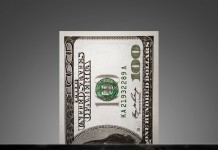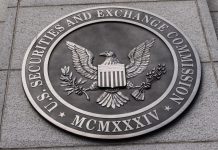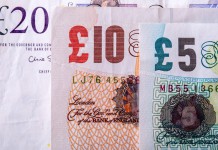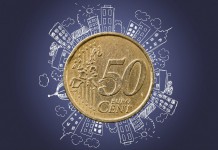Mnuchin “lets the cat out of the bag”
It came as no surprise to finally hear it from the lips of the U.S. Treasury Secretary, but it is now official, America has a “weak dollar policy”.
All the way back to the nineties when the Then Treasury Secretary, Robert Rubin extolled the virtue of a strong dollar, his successors have carried on the policy by word or by deed almost ignoring the economic reality of the policy they were promoting
 The world has changed over the past twenty-five years, particularly with the emergence of China as the world manufacturing behemoth. The value of a currency is a major determinant in that country’s ability to sell outside its own shores. The U.S. has continually labelled China (and various other nations) a currency manipulator and there is likely to be more of this talk to come as the U.S. seemingly starts to concentrate on its position on global trade. President Trump has slapped large tariffs on the import of washing machines and solar panels into the U.S. with more sure to follow.
The world has changed over the past twenty-five years, particularly with the emergence of China as the world manufacturing behemoth. The value of a currency is a major determinant in that country’s ability to sell outside its own shores. The U.S. has continually labelled China (and various other nations) a currency manipulator and there is likely to be more of this talk to come as the U.S. seemingly starts to concentrate on its position on global trade. President Trump has slapped large tariffs on the import of washing machines and solar panels into the U.S. with more sure to follow.
The dollar index is now at levels not seen for more than three years having broken the 90.00 level, and more weakness will probably follow.
Draghi facing tricky questions.
Over his time as President of the ECB, Mario Draghi has faced several tough events. Not least of which was the creation of the Asset Purchase Scheme which ran contrary to his ideals and principles. Now the time is fast approaching for the Asset Purchase Scheme to be consigned to history and Draghi is concerned about the continued weakness of some of the Eurozone economies.
Draghi’s whole tenure has been characterized by a concern that monetary policy is right for the entire region not simply for those with the loudest voices. That stance has been commendable and illustrates a wider concern. If the Eurozone is to grow into the United States of Europe that is seems it inevitably will, there is going to need to be greater integration not least on the fiscal side but also the certain knowledge that the borders between national borders and economies become even more blurred than they are now.
Today could be a very significant moment in the development of the Eurozone. It could easily be the first time that monetary is policy is tightened while Draghi has been President. The tapering of the Asset purchase scheme will be the precursor of an interest rate hike, but that hike will only happen sometime in the future and only when he is satisfied that every country in the region can stand on its own two feet.
And we all thought it was Brexit!
So, the truth is out, the rise in Sterling over the past few months has had nothing to do with the hike in rates or Brexit enthusiasm, it was the U.S. implementing a weak dollar policy. It all makes sense now. You cannot stand in the way of a speeding train and expect to survive. That is true both literally and figuratively when talking about the U.S. Treasury.
Steve Mnuchin, the U.S. Treasury Secretary and the current incumbent of a role held by some revered “money men” such as Bentsen, Rubin, Summers, O’Neill, Paulsen and Geithner spoke yesterday of the benefit of a weak dollar to the U.S. economy. He said that “obviously a weaker dollar is good for us as it relates to trade and opportunities.” This simple statement confirmed months of speculation about when the Administration would stop dancing around the subject and finally “come clean.”
President Trump started his tenure at the White House criticising America’s trading partners for taking advantage of the, long-held, strong dollar policy to sell more goods to the U.S. He labelled several countries as currency manipulators and promised that things would change. Well, for once, he appears to be making good on his promise and a period of dollar weakness has been ushered in.
















